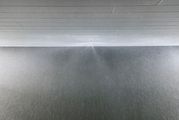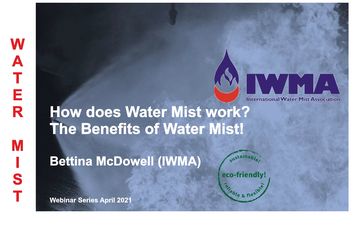" ...is any other firefighting agent as environmentally acceptable as the agent that helps to support life itself."
The Water Mist Fire Suppression Process
Cooling Effect: The small droplets created by water mist systems, increase surface area to maximize the efficient absorption of heat.
Oxygen Displacement: The small droplets evaporate rapidly and expand to displace oxygen in the proximity of the fire.
Radiant Heat Attenuation: The small droplets provide effective protection from radiant heat.



The environmental advantages:
- Water mist systems consume notably less water than traditional sprinkler systems minimizing consequential water damage and downtime for businesses
- Water mist systems do not contribute to ozone depletion or global warming.
- Water mist systems do not produce toxic by-products when applied to a fire and do not require complex decommissioning procedures.

Further advantages:
- Water mist systems are easy and fast to install
- They can be retrofitted and extended easily
- Less material is needed due to smaller components (such as pipes and tanks)
- Some water mist systems can be connected to the mains
- Water mist has an effect on two of the three sides of the fire triangle - the heat and the oxygen (water mist also wets the surroundings and has thus an effect also on the third side of the fire triangle, althought not as much as a sprinkler system)
- Due to the size of the droplets, water mist is well distributed, fills many nooks and crevices within seconds of activation
- Water mist can be carried around with the air flow and is therefore not depending on hitting the fire directly - it is therefore able to control or extinguish even concealed fires
- When it comes to smoke control, water mist will efficiently cool the smoke layer, preventing the hot gas layer to contribute to further fire spread - the water mist will also cleanout some of the smoke particles
- Water mist does not harm humans
- The disposal of fire water is easy due to the small amount of water


